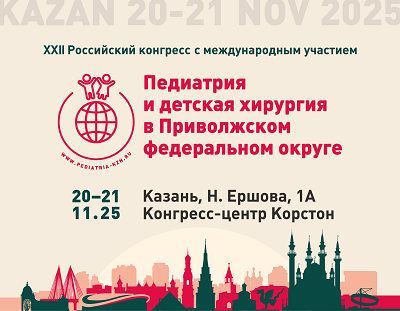Antiphospholipid syndrome in a pregnant woman and global cerebral ischemia in a newborn: are they connected?
https://doi.org/10.21508/1027-4065-2020-65-5-209-214
Abstract
Cerebral ischemia is the most common pathology of the central nervous system in newborns, and its neuropsychological consequences cause child disability. The global cerebral ischemia in a newborn may be caused by a violation of fetoplacental blood flow in pregnant woman with antiphospholipid syndrome. The article considers the role of antiphospholipid antibodies in the pathogenesis of hypoxice-mia-ischemic brain damage of the fetus and newborn child. The authors present a clinical case of a patient with spastic cerebral palsy and delayed psychomotor development born from a mother with antiphospholipid syndrome.
About the Authors
D. D. GaynetdinovaRussian Federation
A. A. Novoselova
Russian Federation
References
1. Fleetwood T., Cantello R., Comi C. Antiphospholipid Syndrome and the Neurologist: From Pathogenesis to Therapy. Front Neurol 2018; 26(9): 1001. DOI: 10.3389/fneur.2018.01001
2. Mayer M., Cerovec M., Rados M., Cikes N. Antiphospholipid syndrome and central nervous system. Clin Neurol Neurosurg 2010; 112(7): 602—608. DOI: 10.1016/j.clineuro.2010.03.023
3. Abou-Nassar K., Carrier M., Ramsay T., Rodger M.A. The association between antiphospholipid antibodies and placenta mediated complications: a systematic review and meta-analysis. Thromb Res 2011; 128(1): 77-85. DOI: 10.1016/j.throm-res.2011.02.006
4. Benedetto C., Marozio L., Tavella A.M., Salton L., Grivon S., Di Giampaolo F. Coagulation disorders in pregnancy: acquired and inherited thrombophilias. Ann N Y Acad Sci 2010; 1205: 106-117. DOI: 10.1111/j.1749-6632.2010.05674.х
5. Topel C.H., Brey R.L. Antiphospholipid Antibody Syndrome. In: Primer on Cerebrovascular Diseases (Second edition). L. R. Caplan, J. Biller, M.C. Leary, E.H. Lo, A.J. Thomas, M. Yenari et al. (eds). San Diego: Academic Press, 2017; 590-594. DOI: 10.1016/B978-0-12-803058-5.00116-8
6. Tokushige S., Matsumoto H., Takemura T., Igeta Y., Hashi-da H. Secondary hypertrophic pachymeningitis in antiphospholipid syndrome. J Neuroimmunol 2012; 250(1-2): 115— 117. DOI: 10.1016/j.jneuroim.2012.05.006
7. Muller-Calleja N., Rossmann H., Muller C, Wild P., Blanken-berg S., Pfeiffer N. et al. Antiphospholipid antibodies in a large population-based cohort: genome-wide associations and effects on monocyte gene expression. Thromb Haemost 2016; 116(1): 115-123. DOI: 10.1160/TH15-12-0947
8. Berman H., Ugarte-Gil M.F., Espinosa G., Tassies D., Mon-teagudo J., Reverter J.C. et al. Can inherited thrombophilia modulate the clinical phenotype of patients with antiphospholipid syndrome? Clin Exp Rheumatol 2013; 31(6): 926-932.
9. Sebastiani G.D., Iuliano A., Cantarini L., Galeazzi M. Genetic aspects of the antiphospholipid syndrome: An update. Autoimmun Rev 2016; 15(5): 433-439. DOI: 10.1016/j.autrev.2016.01.005
10. Tanimura K., Jin H., Suenaga T., Morikami S., Arase N., Kishida K. et al. P2-Glycoprotein I/HLA class II complexes are novel autoantigens in antiphospholipid syndrome. Blood 2015; 125(18): 2835-2844. DOI: 10.1182/blood-2014-08-593624
11. Novik G. A., Abba-kumova L.N., Kiknadze K.G. Antiphospholipid syndrome in children. Meditsina neotlozhnyh sostoyanii 2011; 37(6): 9-12. (In Russ.)
12. Rana A., Musto A.E. The role of inflammation in the development of epilepsy. J Neuroinflammation 2018; 15(1): 144. DOI: 10.1186/s12974-018-1192-7
13. Saliba E., Debillon T., Auvin S., Baud O., Biran V., Chaber-naud J.-L. et al. Neonatal arterial ischemic stroke: Review of the current guidelines. Arch Pediatr 2017; 24(2): 180-188. DOI: 10.1016/j.arcped.2016.11.005
14. Gordon O., Almagor Y., Fridler D., Mandel A., Qutteineh H., Yanir A. et al. De novo neonatal antiphospholipid syndrome: a case report and review of the literature. Semin Arthritis Rheum 2014; 44(2): 241-245. DOI: 10.1016/j.semar-thrit.2014.04.003
15. Jasoni C.L., Sanders T.R., Kim D.W. Do all roads lead to Rome? The role of neuro-immune interactions before birth in the programming of offspring obesity. Frontiers in Neuroscience 2015; 9: 455. DOI: 10.3389/fnins.2014.00455
16. Ruiz-Irastorza G., Crowther M., Branch W., Khamashta M.A. Antiphospholipid syndrome. Lancet 2010; 376(9751): 1498— 1509. DOI: 10.1016/S0140-6736(10)60709-X
17. Lockshin M.D., Kim M., Laskin C.A., Guerra M., Branch D.W., Merrill J. et al. Prediction of adverse pregnancy outcome by the presence of lupus anticoagulant, but not anticardiolip-in antibody, in patients with antiphospholipid antibodies. Arthritis Rheum 2012; 64(7): 2311-2318. DOI: 10.1002/art.34402
18. Moroni G., Doria A., Giglio E., Tani C., Zen M., Strigini F. et al. Fetal outcome and recommendations of pregnancies in lupus nephritis in the 21st century. A prospective multicenter study. J Autoimmun 2016; 74: 6-12. DOI: 10.1016/j.jaut.2016.07.010
19. Ergaz Z., Ornoy A. Perinatal and early postnatal factors underlying developmental delay and disabilities. Dev Disabil Res Rev 2011; 17(2): 59-70. DOI: 10.1002/ddrr.1101
20. Canaud G. New insights in the antiphospholipid syndrome associated vasculitis: the role of the AKT/mTORC pathway. Rev Med Interne 2015; 36(7): 439-443. DOI: 10.1016/j.revmed.2015.02.006
21. Gaynetdinova D.D., Tuhfatullina S.I. Clinical and dopplerography study of women with cephalgia and antiphospholipid syndrome. Zhurnal nevrologii i psikhiatrii im. S.S. Korsakova 2019; 119(7): 34-39. (In. Russ.) DOI: 10.17116/jnevro201911907148
22. Di Prima F.A., Valenti O., Hyseni E., Giorgio E., Faraci M., Renda E. et al. Antiphospholipid Syndrome during pregnancy: the state of the art. J Prenat Med 2011; 5(2): 41-53.
Review
For citations:
Gaynetdinova D.D., Novoselova A.A. Antiphospholipid syndrome in a pregnant woman and global cerebral ischemia in a newborn: are they connected? Rossiyskiy Vestnik Perinatologii i Pediatrii (Russian Bulletin of Perinatology and Pediatrics). 2020;65(5):209-214. (In Russ.) https://doi.org/10.21508/1027-4065-2020-65-5-209-214












































